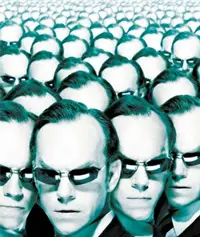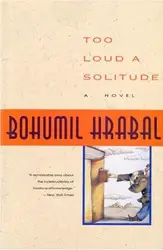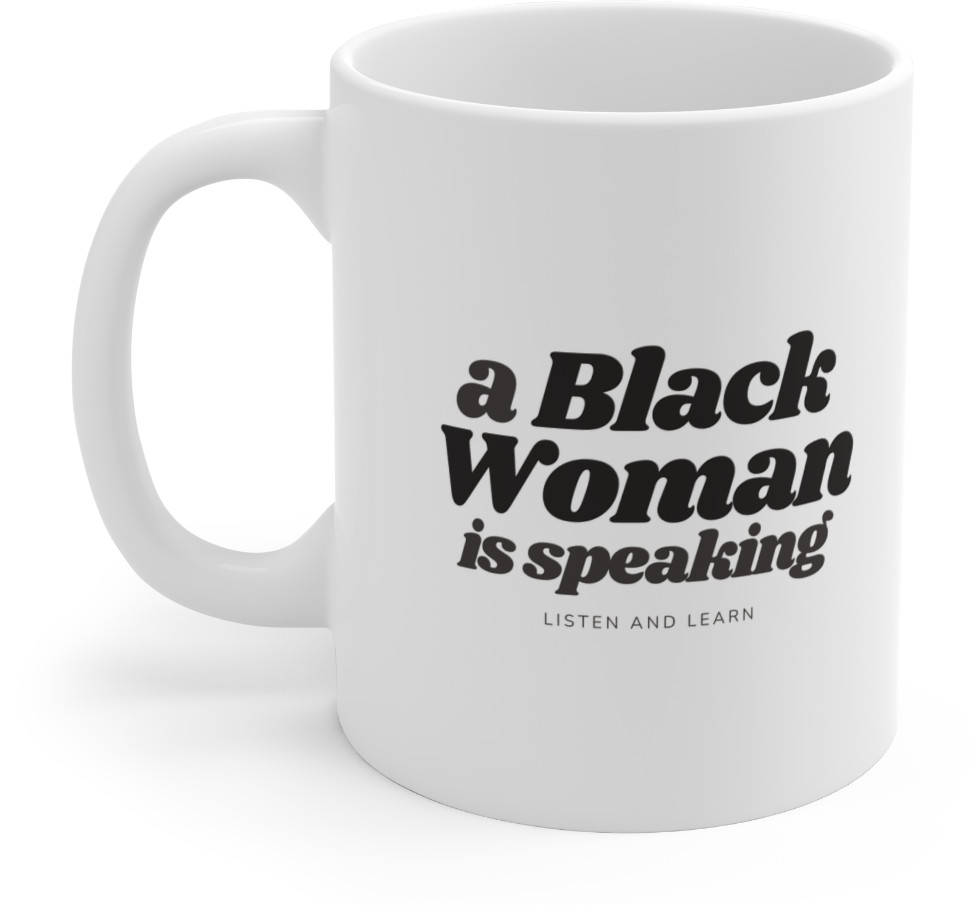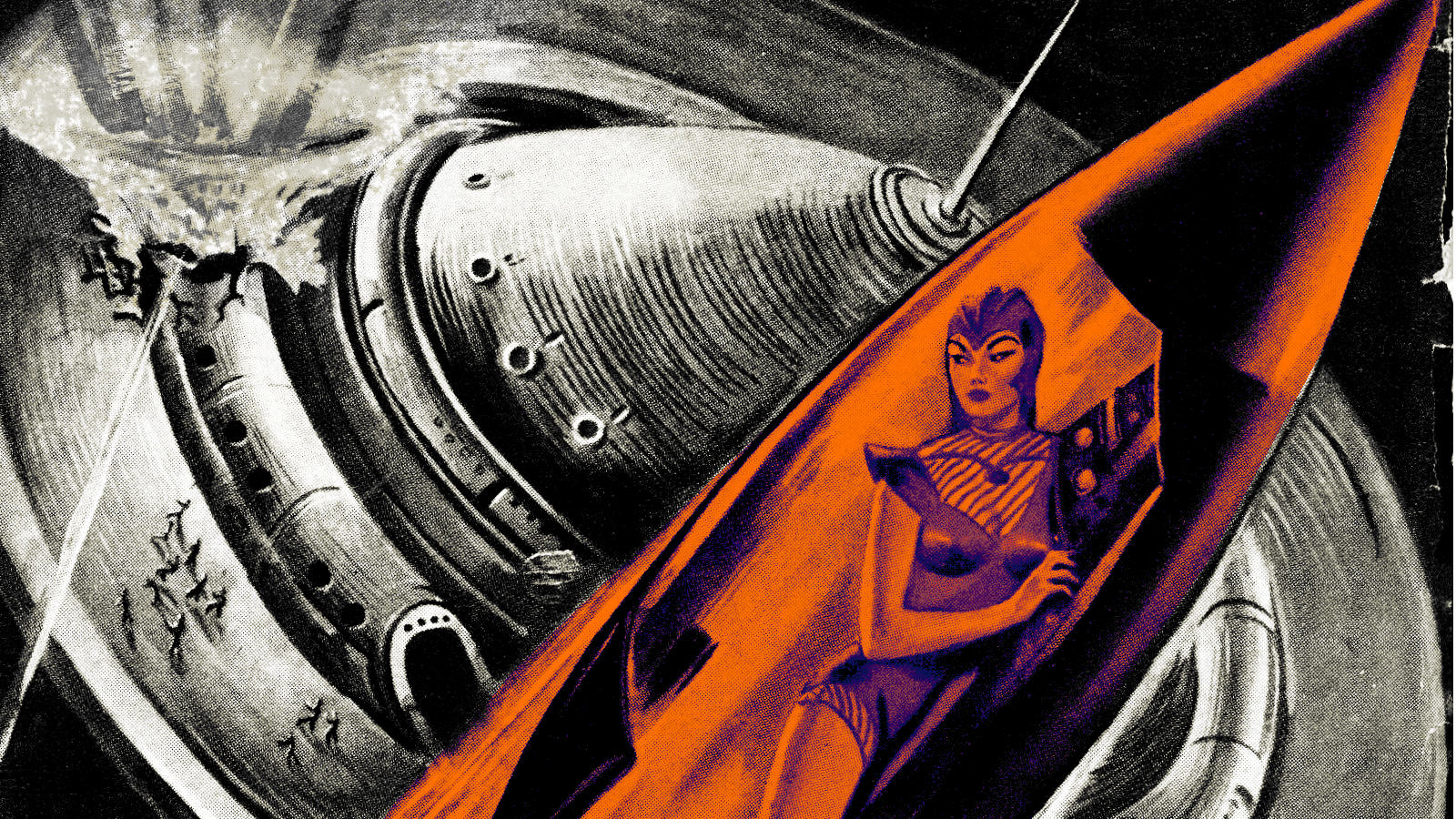Yesterday a colleague told me about a science fiction and romance writing group that meets not far from my house. I’ve written and published some genre fiction (no, I won’t tell you my pseudonym), so I’m thinking about stopping by. Of course, inside my head the literary snob alarm was blaring, telling me not to lower myself to that level. But it got me thinking about my favorite science fiction books and recent developments in the world of genre publishing.
Ian McEwan’s Solar is about a physicist who stumbles onto a potential fix for climate changes. He is also, apparently, a philanderer and kind of an asshole. And when McEwan once read an excerpt of the book at the Guardian Hay Festival, folks were very surprised that it was, well, funny. This is a guy who had been writing books about the Iraq war, sexual inadequacy, and betrayal by family, so humor-laden science fiction was something of a departure.
Likewise, Rick Moody isn’t exactly well-known in SFWA (Science Fiction and Fantasy Writers of America) circles. His foray into SF is less surprising, perhaps, because he is unafraid of trying new things (like tweeting a short story or writing about accommodation reviews). But The Four Fingers of Death, a 700+ page novel about a severed arm with four fingers in the Sonoran Desert? Not exactly The Ice Storm.
Kazuo Ishiguro’s The Remains of the Day was one of my favorite books from my college years. Another of his books, Never Let Me Go, was short-listed for the Booker Prize, and was about cloned children created for an organ-donation program.

And while the technology is foreseeable, it’s not here yet, and that is exactly what science fiction is about: exploring the world that exists if something. If there’s faster-than-light travel. If there are aliens. If cloning turns out to work well in twenty years. If Africa had never been plundered. Etc.
Ishiguro hedged when an NPR correspondent once asked him if it was science fiction, saying, “you want to call it science fiction, fine, but I mean, it might not fulfill a lot of the genre expectations of sci-fi fans.” But he also notes that writing in a world where realism has been flung to the side is “quite an exciting place to put the reader.”
And of course Ishiguro’s not alone in hesitating to label his work with categories. When McEwan was asked at the Hay Festival if he would call Solar a comedy, he denied it and said it had “extended comic stretches.”
And despite stepping foot in genre waters, Moody reinforces the problem of pigeonholing non-realism, saying about the origins of Four Fingers Of Death: “I really love bad, old horror movies, the b-film variety, the drive-in variety…so I picked a particularly embarrassing example, The Crawling Hand and began adapting it.”
That’s a disparaging sort of nostalgia, especially when he says that the style is similar to books of a “sub-literary genre” by folks like Vonnegut, Dick, and Pynchon. Not “literary sub-genre,” mind you, but “sub-literary genre.” Ouch. Does this mean we’re not supposed to take his book seriously? I think not. I suspect it’s just an unfortunate result of the literary establishment being terrified of classifications and labels, the sort of vestigial tail of literary writing.
Most non-genre writers will tell you that they’re not interested in labels because they go where the work takes them; that is, if the work ends up seeming like sci-fi, so be it, but the primary purpose and goal is to explore humanity.
But if what we are doing, as literary writers, is diving into humanity and trying to find out what it is that makes us human, what that means, then we are by definition playing with philosophy. And while I’m more or less agreed with the general consensus that books with a message are annoying, I’m starting to wonder if that’s not unfair and, in a way, irresponsible to the racial Work that must be done. It falls in line with the general western (and particularly white American) feeling that we don’t want to be confronted with anyone else’s opinion because we like our own better.
I can’t say that’s bad, exactly, because ego is part of the human condition, for better or worse. But to be unwilling to hear another person’s beliefs is just plain selfish. (It works both ways, too: here’s a fundamentalist denouncement of sci-fi ominously titled “Beware of Science Fiction” that’s quite closed-minded.) Now, of course reading fills this funny little niche somewhere between relaxation and research, and most people, in their fun time, aren’t going to want to be preached at.
But if you’re a reader who wants to engage with ideas and use your own brain a little, science fiction is kind of the last bastion for big ideas. At least, that’s what Clive Thompson says. In that excellent article for Wired, Thompson says:
I was reading novel after novel about the real world. And there are, at the risk of sounding superweird, only so many ways to describe reality. After I’d read my 189th novel about someone living in a city, working in a basically realistic job and having a realistic relationship and a realistically fraught family, I was like, “OK. Cool. I see how today’s world works.” I also started to feel like I’d been reading the same book over and over again.”
I’m with Thompson on this. (Also be sure to check out his blog) As I read more and more stories — for workshops, for teaching, for journals, for contests, etc. — I find myself numbed to the point where everything seems flat.
A couple of weeks ago I read a clearly written, accessible, and well-organized piece about a white couple in white suburban America. There was nothing wrong with the story, exactly; the dialogue was fairly snappy, the action and back story were well-integrated, etc. But I couldn’t get through it. Clearly the writer had some skill (if not talent, which is very different), and it’s possible she deserved more than the generic rejection she got, but I couldn’t take it because though there was some emotional depth to the characters, there was nothing beyond that. No resonance. The story did not do anything with the world outside of itself or face any issue pressing upon us in our time — it was completely self-contained. And I couldn’t take the emotional revelations and apply them to my Black world, or use the story as some kind of gateway to a deeper understanding of my Black self.
There’s a problem of an over-abundance of suburban white middle-class fiction that’s related to this. And while it would seem that reading characters who are more or less in similar situations to myself would be, if anything, better at helping me understand humanity, it simply isn’t the case. I get more out of a genius space pilot prodigy like in Ender’s Game than I do from almost any contemporary fiction I’ve read. Cloud Atlas gave me a thousand times more to think about than the last Tim O’Brien book I read.
Maybe this is why, beyond Black science fiction, I’m attracted to eastern European stuff, like Bohumil Hrabal and Martin Simecka. (Hrabal wrote my favorite book, Too Loud a Solitude, and Simecka wrote my favorite book I read in 2006, The Year of the Frog.) Also Ismail Kadare and Andrzej Szczypiorski. (I wonder what Czech or Polish spelling bees are like.)

There’s a lot of mysticism in that part of the world, and it’s the most beautiful part of books like The Three-Arched Bridge. I know that mysticism isn’t the same as science fiction, but its end result is similar: it refuses to be limited by what is empirically observable at the moment of the writing. It asks What if? and sometimes tries to answer it, though the best books are the ones that make/ask you do the answering.
If we don’t want to be told/preached at/lectured to, then shouldn’t we invite literature that asks us to do that work? Books that demand we put away our focus on reality and allow our minds to consider things larger than ourselves? To step into the shoes of a Black person? After all, even science is in a constant state of flux (see “Earth, flatness” and “Medieval medicine”), so to presume that work grounded in reality is somehow inherently more significant than work that isn’t would defy all sensibility.
What I really want is the unexpected, because that makes me think about something I haven’t considered before. Of course, things are only unexpected for a while before they turn into tropes (the so-called hooker with a heart of gold even has a Wikipedia entry). So a piece of writing must, for me to be really emotionally and intellectually engaged, find something unexpected in reality.
And as Thompson notes, “there are, at the risk of sounding superweird, only so many ways to describe reality.” So if you change a couple historical facts (like Roth did in The Plot Against America) or extrapolate current technology into the future, or presume that humans might be able to live for a millennium, or allow for the possibility that the future is no longer white, you encounter a much broader range of possibilities for the unexpected. (Of course I don’t just mean you say, “Surprise! This book has orange aliens!” I’m talking about relationships that take a surprising course that simply isn’t possible given our contemporary limitations. Thompson: “What if you could confront, talk to, or kill God?”)
Of course I’m not arguing that science fiction is necessarily of literary merit. There’s a lot of crap out there, and Thompson notes that “the genre tolerates execrable prose stylists” and also transphobia, white saviorism, racism, and sexism. But with more of what we consider literary authors taking a stab at science fiction, there’s reason to hold out hope that the divide between genre and literary fiction is shrinking.
Fantasy writer Terry Pratchett, who has sold uncountable millions of books, once said, “I think the future of science fiction, alas, is to be subsumed into mainstream literature. Not necessarily the Booker Prize-winning subset of mainstream literature, but just the books that we read every day. It’s become part of the culture now.”
Ian McEwan won a Booker Prize. So who’s subsuming who? Even if McEwan, Moody, and Ishiguro don’t want to be labeled as science fiction writers, you can bet they’re not going to regret adding that segment of the book-buying population to their potential customer base.
Of course, these writers aren’t going to be shelved under SF at your local Barnes & Noble, but the subject matter may lead some literary snob readers to sample some more science fiction, and the crossover will hopefully work the other way. I don’t believe that anyone has anything to lose here; the idea of the literary marketplace being diluted by genre writing is silly and elitist and plays into the egoism I mentioned earlier. Writers in all genres have much to learn from each other.
After all, if one considers genre writing to be somehow less worthy, doesn’t one then have a moral obligation to try to fix the problem rather than simply whine about it?
So I may be joining that genre writing group soon, or at least stopping by, and I’d like to think I can offer them something better. And that means that, at least for the time being, I’ve installed a snooze button on my literary snob alarm.
But there's more. Check out these bussin stories:
- Love SMH
 Inside the strange, incelly world of Asian supremacy It's the racial supremacy and incel-ism crossover nobody asked for, and it finds a welcoming home on Reddit.
Inside the strange, incelly world of Asian supremacy It's the racial supremacy and incel-ism crossover nobody asked for, and it finds a welcoming home on Reddit. - Love
 Guys get friend-zoned, girls get ‘fuck-zoned’. And that’s not OK. AKA the state one enters into when you have sex with a man who might previously have considered you a potential romantic partner but now considers you a casual sexual partner.
Guys get friend-zoned, girls get ‘fuck-zoned’. And that’s not OK. AKA the state one enters into when you have sex with a man who might previously have considered you a potential romantic partner but now considers you a casual sexual partner. - Health
 Everything a girl needs to know about toxic shock syndrome Not just tampons, and not just women.
Everything a girl needs to know about toxic shock syndrome Not just tampons, and not just women.



Russians are slaughtering Ukrainians by the thousands, there are record gas prices, the FED is printing money, there is an oncoming economic recession, an energy crisis in Europe, crazy lockdown in Shanghai, and the problem of some people is “whiteness in science fiction”. Truly baffling.
It’s called Black Fragility.
90% of everything is shit. Except shit. 100% of shit is shit.
The part that I find really interesting is that the genre fiction/literature distinction doesn’t exist in Latin America. I was in a Chilean bookstore and tried to find some original South American sci-fi, and all I could find was Isabel Allende——which is lovely magical realism semi-autobiography (I don’t know if that’s a valid term). It was a very professional bookstore, but everything was just sort of mixed together under the categories fiction, non-fiction, and poetry.
“The story did not do anything with the world outside of itself or face any issue pressing upon us in our time — it was completely self-contained. And I couldn’t take the emotional revelations and apply them to my Black world, or use the story as some kind of gateway to a deeper understanding of my Black self.”
Must every story do these things, serve as a vehicle for the writer polemic or the readers self-insertion?
You said there is a problem in science fiction, but then you said you were reading a story set in middle class suburbia – that doesn’t sound like science fiction.
Science fiction, in its early stages and especially before whites writ large glomed on to it like flies on shit, was supposed to be a vehicle to explore humanity through technology, not the other way around. The best stuff does exactly that, and does it in ways that realism doesn’t have access to. But, yes, it’s easier to get into the non-literary genres, which I think attracts a lot of writers who simply aren’t that good. That’s why it’s promising to see respected Black voices getting into genre literature, because it should help raise expectations.
i think the main problem with bad sci-fi is the lack of humanity. some writers get too attached to cool technology or a different species. what i mean by humanity is something that i the reader can connect to. bad sci-fi is because of bad writers and if they wrote something that was supposed to be literary, it would still suck.
i’m sure i was going somewhere with all of that, but i’m tired.
I’ve noticed this. I think white authors lack courage to write about anything deep because they think everyone is out to get them (white fragility). Or maybe it’s the way they have been socialized by the system. In any case, I’m putting a stop to white authors until we can figure out what’s going on.
“I think white authors lack courage to write about anything deep because they think everyone is out to get them (white fragility).”
If you accuse people of thinking everyone is out to get them, aren’t you confirming this belief?
What sort of ‘deepness’ do you want in your science fiction, political depth? Have you never read Ursula K. Le Guin or Kim Stanley Robinson?
I like what you’re saying here, but maybe that’s just because I agree with you. I feel that I have read so many stories about basically normal white people, living basically normal white lives, that they all run together. Is it possible we could learn even more about the human condition if we read/write about people of color or situations we will not or cannot encounter in everyday life (enter genre fiction).
I find myself desiring to read something that hasn’t been canonized as a trope yet. I want something with literary quality and something original. I want unencumbered and celebrated Black Excellence. Perhaps the best place to get that is in the Sci-fi genre, or if I may take it one step farther, in the (gasp) fantasy genre. Certainly there is a lot of crap out there which isn’t worth the paper its printed on. But I for one would love to see more of the described cross-over, resulting in more books by good authors of literary merit – yes, complete with ray guns.